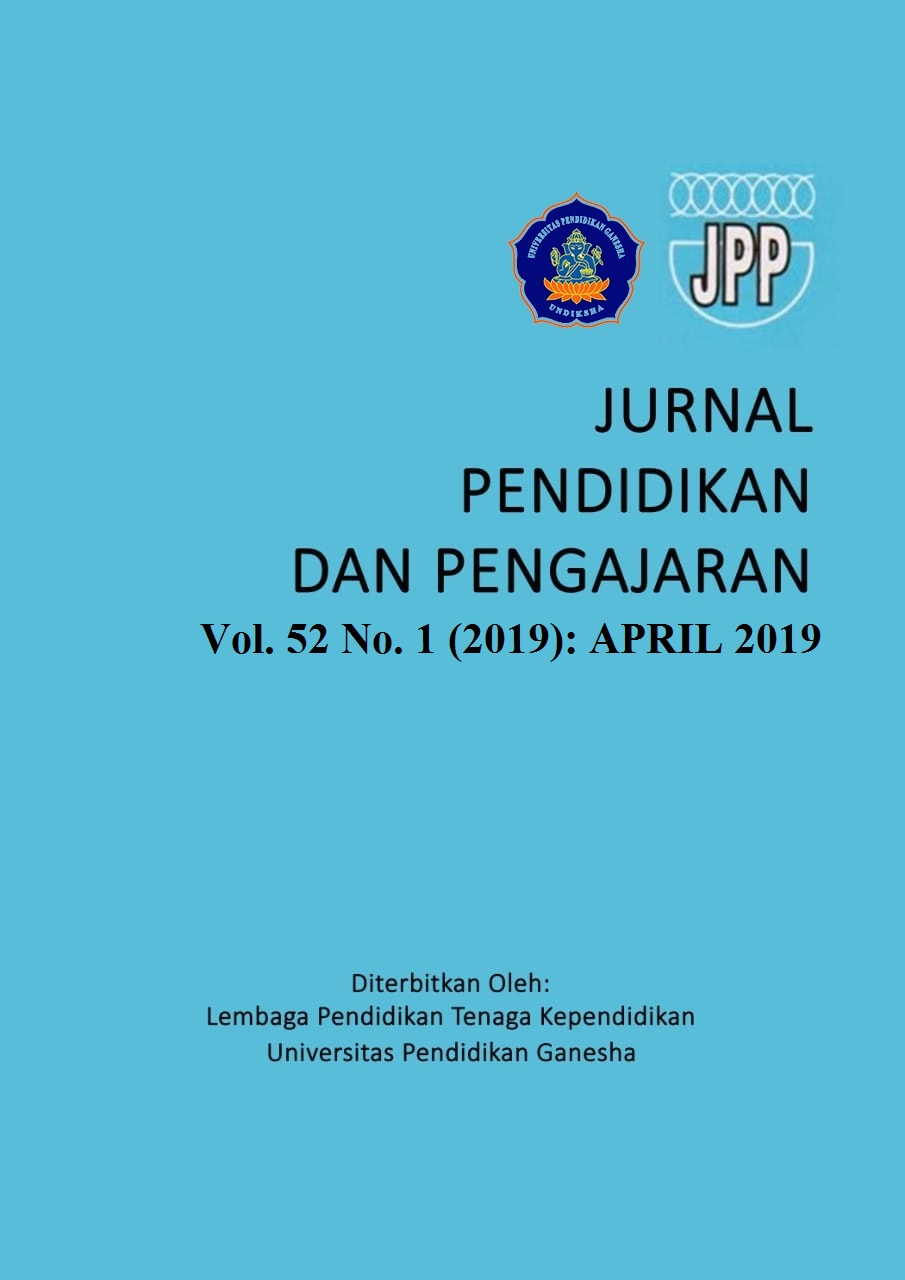Development of mathematics learning tools through scientific approach with problem based learning (PBL) settings to improve motivation and learning achievement
DOI:
https://doi.org/10.23887/jpp.v52i1.17247Keywords:
learning tools, scientific approach, problem based learning (PBL), motivation, learning achievementAbstract
This research aimed at obtaining a scientific learning tool in the scientific approach with a valid, practical and effective problem based learning (PBL) setting. This development research was carried out according to Plomp & Nieveen (2010), i.e. (1) initial phase, (2) prototype phase, and (3) assessment phase (semi-summative evaluation). The learning tools consisted of student books and teacher manuals. This research was carried out at SMP Negeri 4 Mengwi. Learning device quality data was collected with validation sheets, learning device implementation sheets, student response questionnaires and teacher responses, motivation questionnaires and mathematics learning achievement tests. The characteristics of student books are (1) learning begins with real problems in everyday life that related to the material being studied; (2) students are given the opportunity to ask questions from the observations that have been done and answered by their colleagues; (3) discuss and seek solutions from the problem of "come thinking!" which has been given in groups; (4) presenting the results of the discussion, thus the students can give opinions, ask questions, and respond; (5) there is a summary of each material in each chapter. Characteristics of the teacher's manuals are (1) the existence of an initial narrative that describes the framework of the material to be studied; (2) contains the way the teacher facilitates learning in each part of the material; (3) include the student's book thus the teacher does not need to bring the students’ book; (4) there is an alternative solution to the problems and those problems are given in the student book; (5) the planting concept is done through problem based learning. The results showed that learning devices met the criteria: (1) valid, with an average validity was 3.62 based on the opinions of two validators, (2) practical, with an average practicality was 3.13 based on the implementation of learning devices from the viewer's opinion, teachers, and students, (3) effective, with an average learning motivation of 81.9 and the average results of the 80.9 student learning achievement test were based on students' completeness in learning material that exceeds the defined KKM by showing increased in the motivation and student learning achievement.Downloads
Published
2019-04-05
How to Cite
Dewi, N. L. S., Suweken, G., & Sudiarta, I. G. P. (2019). Development of mathematics learning tools through scientific approach with problem based learning (PBL) settings to improve motivation and learning achievement. Jurnal Pendidikan Dan Pengajaran, 52(1), 33–39. https://doi.org/10.23887/jpp.v52i1.17247
Issue
Section
Articles
License
Authors who publish with Jurnal Pendidikan dan Pengajaran agree to the following terms:- Authors retain copyright and grant the journal the right of first publication with the work simultaneously licensed under a Creative Commons Attribution License (CC BY-SA 4.0) that allows others to share the work with an acknowledgment of the work's authorship and initial publication in this journal
- Authors are able to enter into separate, additional contractual arrangements for the non-exclusive distribution of the journal's published version of the work (e.g., post it to an institutional repository or publish it in a book), with an acknowledgment of its initial publication in this journal.
- Authors are permitted and encouraged to post their work online (e.g., in institutional repositories or on their website) prior to and during the submission process, as it can lead to productive exchanges, as well as earlier and greater citation of published work. (See The Effect of Open Access)





